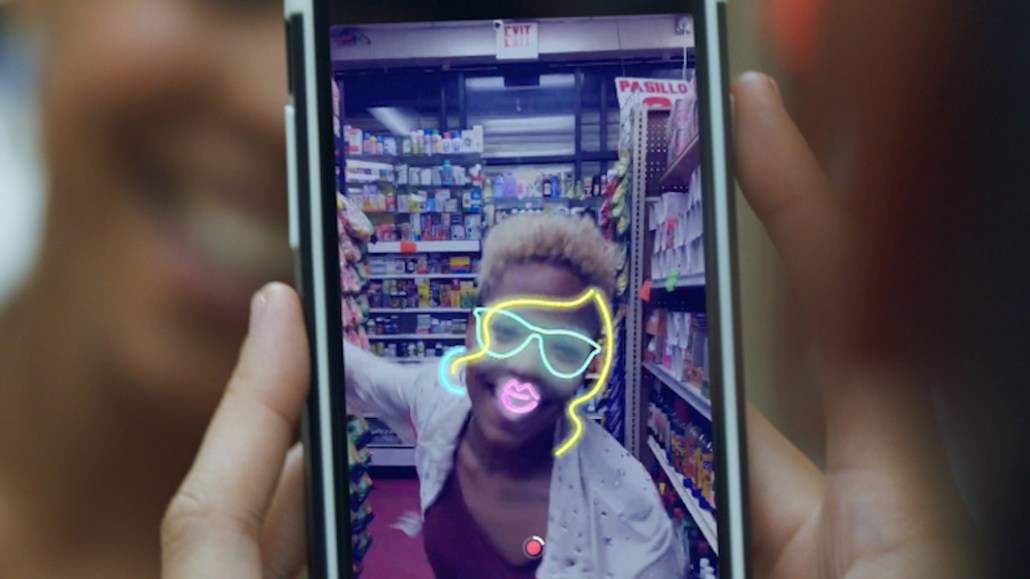
Facebook is a paradox for luxury retailers. On the one hand, its size makes it hard to ignore. But on the other, there’s nothing more mass — and less exclusive — than Facebook.
Karin Tracy, former InStyle publisher and now Facebook beauty industry lead, is charged with wooing luxury brands. Yesterday, Tracy led Facebook’s inaugural luxury forum, making her case that high-end brands need to embrace social marketing. Speaking to an audience comprised primarily of fashion and beauty executives, Tracy and other members of the Facebook team weren’t shy to admit their previous faults, conceding that the platform’s capabilities were not in line with the needs of luxury brands until now.
“I know you’ve maintained tight control over your brand identity and your messaging and that’s understandable,” Tracy said, speaking to audience members. “The luxury industry is built on legacy, heritage and craftsmanship. But we must understand that these one-on-one relationships that you’ve built for years are shifting.”
The shift she alluded to is the continued push to mobile commerce and online shopping, one she asserts Facebook is uniquely qualified to assist with given that 20 percent of time spend on mobile is directed to Facebook and Instagram.
“People go to their phones first and most frequently, like a hummingbird throughout the day,” said Thomas Puckett, creative strategist at Facebook. “And [brands] can be there every time, bringing content to them.”
Facebook has recognized that part of appeasing luxury brands is acknowledging the importance of the in-store retail experience and ensuring it isn’t left by the wayside. Spencer Mandell, a fellow creative strategist, explained that a key component of bridging this gap is experimenting with new technologies like virtual reality that can transport users to events like the Met Gala in real-time or get behind the wheel of a Bentley for a test-drive.
“We know that luxury is largely an offline experience,” Mandell said. “You want to feel the leather on that Gucci bag and you want to hear the roar of that high-performance engine, so how do we translate those experiences online in a feed-based environment?”
The answer isn’t cut-and-dry, as expressed by Joe Barbagallo, manager of marketing communications at Masserati North America. After sharing how Facebook integrations helped with a recent product launch, he admitted that for its most exclusive models, the brand still doesn’t have a keen sense of identifying its consumers on Facebook.
“To be completely honest, for the most expensive car that we sell, our Gran Turismo, these audiences are a little bit difficult to find,” he said. “But for 80 percent of our product lineup, we’re able to find the audience on Facebook and sell them a vehicle.”
Ultimately, Facebook is advocating for “digitally influenced sales,” that assist consumers with the discovery process while still driving them to e-commerce sites and physical stores, said Narain Jashanmal, industry manager of retail at Facebook. This concept has helped major retailers like Barneys break out of the traditional retail rut and embrace e-commerce.
“We were a little bit late to the game in terms of e-commerce when I first started,” Barneys CEO Danielle Vitale said at the event. “Our job in the last six years was to get up to scale rather quickly. Since we were in an organization that was rooted in physical retail, that meant really bolstering not only the digital piece of the business, but the executives in the company that understand the importance of it.”
Tracy echoed Vitale, and said that a major component of luxury brands working collaboratively with Facebook is changing perspectives to find the business value in shifting online.
“It’s about you all shifting the way you think,” Tracy said. “This is the moment to be bold, because whoever moves the fastest will have the competitive advantage in the space we’re living in today. We’re living our lives in the speed of feed.”
More in Media

Meta AI rolls out several enhancements across apps and websites with its newest Llama 3
Meta AI, which first debuted in September, also got a number of updates including ways to search for real-time information through integrations with Google and Bing.

Walmart rolls out a self-serve, supplier-driven insights connector
The retail giant paired its insights unit Luminate with Walmart Connect to help suppliers optimize for customer consumption, just in time for the holidays, explained the company’s CRO Seth Dallaire.

Research Briefing: BuzzFeed pivots business to AI media and tech as publishers increase use of AI
In this week’s Digiday+ Research Briefing, we examine BuzzFeed’s plans to pivot the business to an AI-driven tech and media company, how marketers’ use of X and ad spending has dropped dramatically, and how agency executives are fed up with Meta’s ad platform bugs and overcharges, as seen in recent data from Digiday+ Research.









